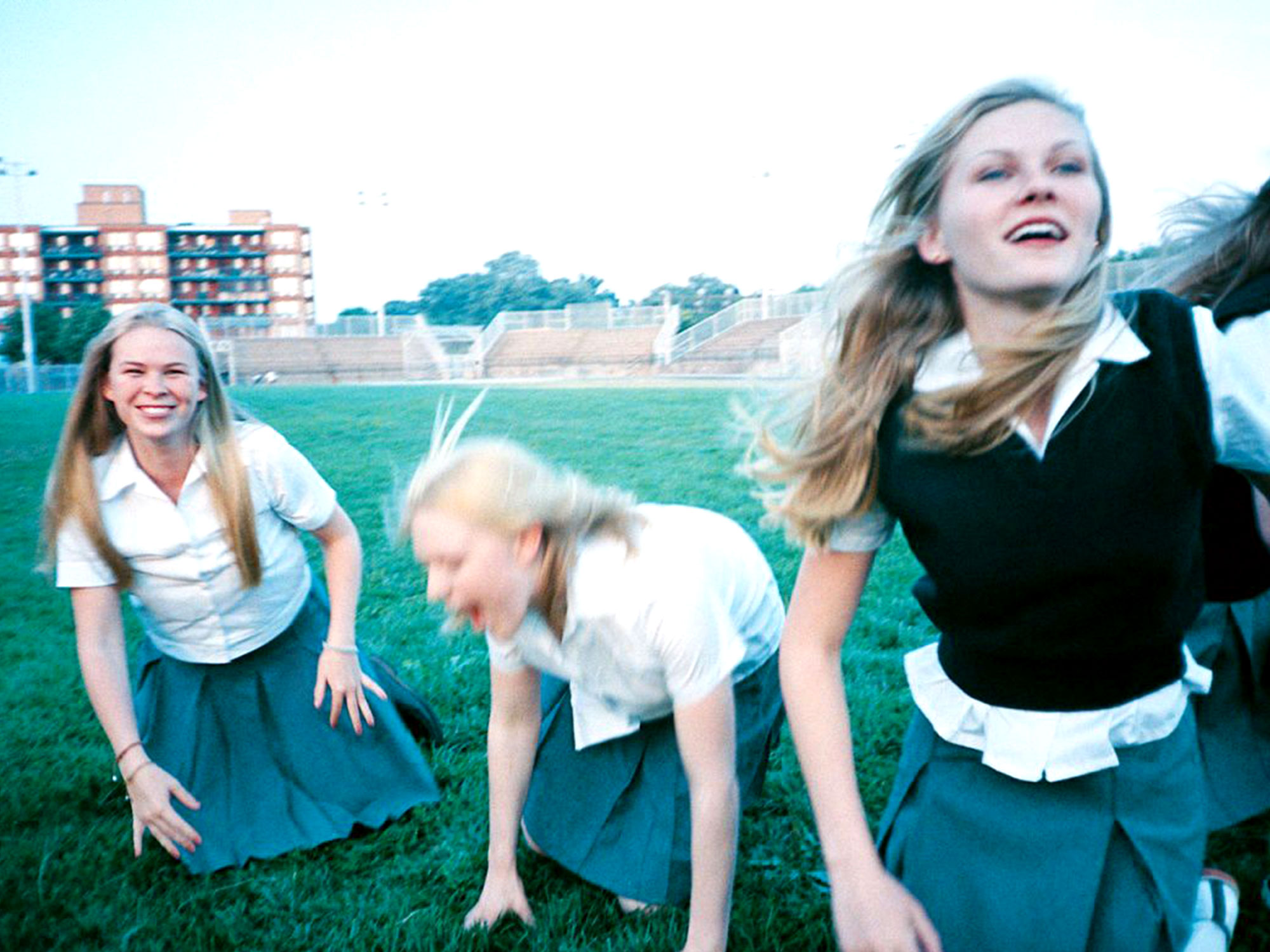Filmography: Sofia Coppola
by John Gilpatrick, December 8, 2017
Young women sheltered by their religious parents in suburban Detroit. An frustrated actor and neglected wife living temporarily in a foreign land. An immature queen. A jaded father. Fame-obsessed teens. Civil War era schoolgirls.
It's not too difficult to hone in on a singular theme throughout Sofia Coppola's filmography—isolation. Throughout her six directed films, the scenarios are different, the stakes vary, and the resulting actions are appropriately inconsistent. But all six deal with this theme in ways that are appropriately complex and tonally assured. Let's dig in. [Spoilers abound.]
The Virgin Suicides kicked off Coppola's career in 2000. An adaptation of Jeffrey Eugenides' novel of the same name, it tells the story of five sisters who are kept under extremely close watch by their overprotective parents that they're driven to kill themselves. It starts with Cecilia, who leaps from the second story of their house and gets impaled by an iron fence. This leads to even stricter rules and closer watching over the remaining girls, eventually leading to a tragic night of four suicides.
Unlike many of the films that will come later, The Virgin Suicides' isolated characters have a lifeline, someone watching over them, in the form of Kathleen Turner as the mother. But while she's there for them and seemingly wants the best for them, her idea of what's best is completely antithetical to what the girls want and as a result, the way she communicates with them is utterly toxic.
This type of relationship carried over to Coppola's second film to an extent. In Lost in Translation, Bill Murray's Bob Harris feels extremely isolated from his wife of 25 years. He thinks her over-protectiveness is a result of his midlife crisis, and that communication style is one of the main reasons why he's more than happy to accept a gig in Tokyo. [The $2 million paycheck isn't have bad either, of course.]
Bob isn't Lost in Translation's only isolated character. Scarlett Johansson's Charlotte is perhaps one of the most isolated individuals across the Coppola canon. And their collective isolation is magnified by the film’s sparse, distant camerawork [a Coppola staple] and the setting of Tokyo, which my colleague Alex explored so eloquently earlier this week.
As Coppola continued making films, her characters’ isolation became more a product of themselves than their environment.
Marie Antoinette is certainly unprepared to be queen, and the film of the same name sees her wrestling, peerlessly, with that fact. That said, her actions give off the impression that she has no interest in trying to become the leader her people want and need.
In Somewhere, Stephen Dorff’s Johnny Marco withdraws to a Hollywood chateau when he’s unsure what to do next with his life. While his daughter represents a path to a fulfilling life, he’s unsure if he’s ready to take the first steps.
The Bling Ring, meanwhile, sees bored teenagers, starving for some semblance of fame, steal from the homes of their idols.
The films in this trilogy of self-imposed isolation seem to work best the more satirical they are. The Bling Ring, a sardonic riot, lands spectacularly. On paper, Marie Antoinette should be more tragic than the film Coppola ultimately offers, but its stakes certainly lend it an amount of gravitas not seen in any Coppola since. Somewhere, on the other hand, is a humorless drag—equal parts self-serious and low-stakes. It’s the rare [only] Coppola misfire. A film that never gets off the ground.
With The Beguiled, Coppola appears to be returning to her roots. Like The Virgin Suicides, it’s about a group of women, many young, who are more or less stuck, frustrated, and isolated—this time at their school while the American Civil War rages around them. When a man—a injured Yankee soldier—shows up and disrupts everything, we see the true cost of their isolation.
For the first time in her career, Coppola deals with isolation as horror—not explicitly, perhaps, but certainly in the voice we’ve become accustomed to over the last decade and a half.
Because isolation figures so prominently across her films Coppola is an acquired taste for many. Lost in Translation itself was a film that left me quite cold upon a first watch back in 2004, but the thoughtfulness she uses to deliver her message is powerful, admirable, and stays with you. And all these years later, she’s still delivering.




